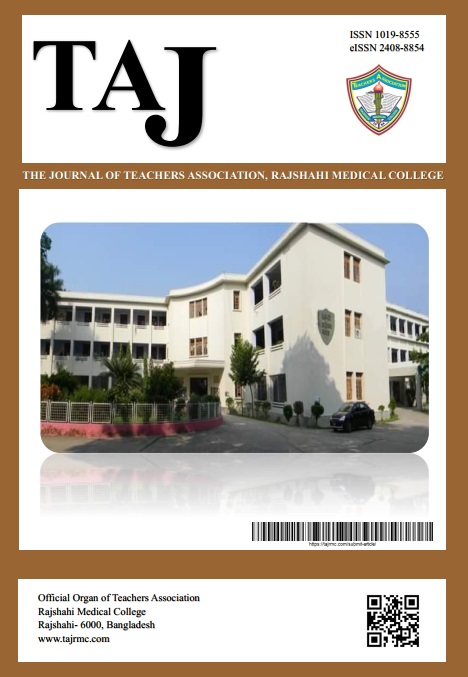| Hemophagocytic lymphohistiocytosis (HLH) is a rare complication of severe dengue infection – A Case Report |
| Md Abdul Barik, Rukshana Amin, Md Mesbah-ul Alam, Md Asadul Islam, Md Mohimanul Hoque, Abu Shahin Mohammed Mahbubur Rahman |
| DOI: https://doi.org/10.62469/taj.v037i01.028 |
| Pdf Download |
Hemophagocytic lymph histiocytosis (HLH) is a rare serious life-threatening condition due to reactive hyperactivity of cytotoxic cells, leading to cytokine storm. Subsequently leads to multiorgan dysfunction and ultimate failure. it could be primary (hereditary) or secondary (acquired) to various conditions including infections. It may occur due to dengue infection carries a grave prognosis even with appropriate treatment. Therefore, a high degree of clinical suspicion is crucial in diagnosing HLH. We report here a case of a patient infected with the dengue virus who developed HLH during hospitalization. A 30-year-old man was admitted to a tertiary care hospital in Rajshahi, Bangladesh with a 4-day history of fever, headache, and alteration of consciousness level. He was hemodynamically stable, and the serological investigation confirmed a dengue infection. On the fifth day of fever, he entered the critical phase of dengue infection, confirmed by ultrasound evidence of plasma leaking. However, he had ongoing high fever spikes during the crucial phase, and even after the critical phase was over, the fever spikes continued. Simultaneously, hepatosplenomegaly was noticed, and he showed persistent thrombocytopenia, neutropenia, and anemia despite the resolution of the critical phase. Further, the workup revealed a serum ferritin level of > 10500 ng/mL triglyceride level of 540 mg/dL. Secondary HLH was diagnosed based on criteria used in the HLH-2004 trial and successfully managed with intravenous dexamethasone 10 mg/body surface area/day for the first 2 weeks, followed by a tapering regimen over 8 weeks.

